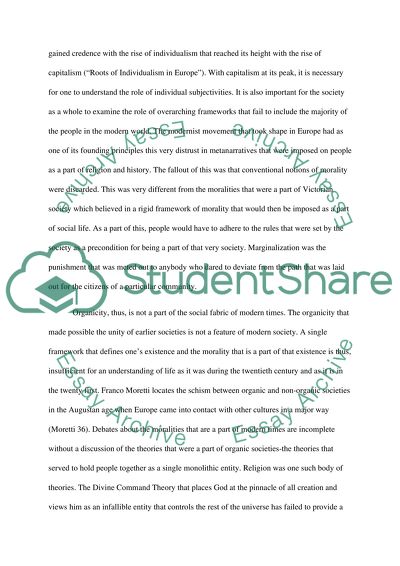Cite this document
(“The Problem of Relativism and Morality Essay Example | Topics and Well Written Essays - 1500 words”, n.d.)
The Problem of Relativism and Morality Essay Example | Topics and Well Written Essays - 1500 words. Retrieved from https://studentshare.org/philosophy/1452714-the-problem-of-relativism-and-morality
The Problem of Relativism and Morality Essay Example | Topics and Well Written Essays - 1500 words. Retrieved from https://studentshare.org/philosophy/1452714-the-problem-of-relativism-and-morality
(The Problem of Relativism and Morality Essay Example | Topics and Well Written Essays - 1500 Words)
The Problem of Relativism and Morality Essay Example | Topics and Well Written Essays - 1500 Words. https://studentshare.org/philosophy/1452714-the-problem-of-relativism-and-morality.
The Problem of Relativism and Morality Essay Example | Topics and Well Written Essays - 1500 Words. https://studentshare.org/philosophy/1452714-the-problem-of-relativism-and-morality.
“The Problem of Relativism and Morality Essay Example | Topics and Well Written Essays - 1500 Words”, n.d. https://studentshare.org/philosophy/1452714-the-problem-of-relativism-and-morality.


